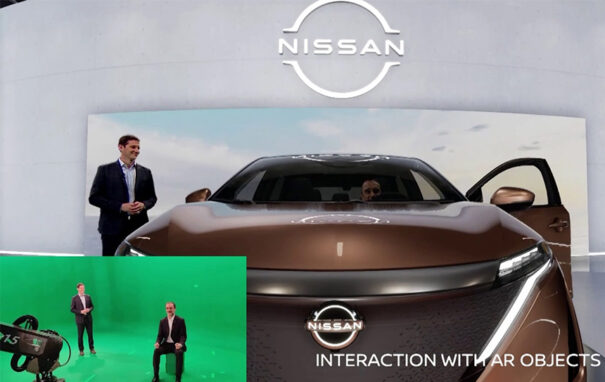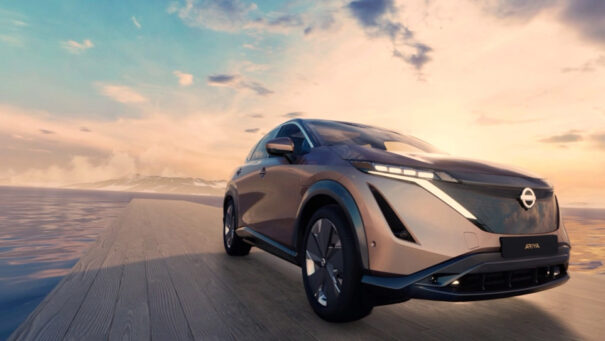Zero Density Reality brings virtual set of the Nissan latest showcase to life
Production studio DreamWall used Reality by Zero Density to manage the virtual and augmented reality for the unveiling of the new Nissan ARIYA.
DreamWall, based in Charleroi, Belgium, powered a virtual production-based presentation that was broadcast to all of the brand’s European car dealerships. Using Reality as a visual engine, event presenters were able to interact with augmented reality objects, creating the illusion of sitting inside the car or getting out of it. These interactions took place within a complete virtual reality set.
To undertake this project, Dreamwall recreated the original car in 3D in Unreal Engine. The studio then animated the car’s movement to recreate its 3D appearance through the faux LED wall included in the presentation. As Zero Density details, the virtual set also allowed the Nissan team to integrate video input descriptions, create virtual camera movements on the car in a virtual environment, enable augmented reality displays to view content, integrate text layers or create interactive elements with augmented reality objects.
The virtual set enabled the Nissan team to drive various forms of presentation, such as duplexing through the main screen, video input descriptions, virtual in-car camera movements in a virtual environment, AR displays to view content, text integration, interaction with AR objects and more.
Visual highlights of the presentation
The Nissan ARIYA launch event demonstrated how it is possible to render high-quality virtual graphics without sacrificing design with Reality Virtual Studio. This allowed DreamWall to use lighting techniques such as global illumination and ambient occlusion, which helped the Nissan launch event reach a new level of realism. In addition, by compositing the green screen image into the 3D scene, Reality allows for realistic real-time reflections and refractions of the physical objects and people within the green screen onto the virtual graphics.
Other design details include the use of volumetric fog and volumetric light maps that also enhanced the overall ambience of the set. The 4K textures and use of physical materials also enhanced the rendering, making even the most complicated elements, such as glass and reflections, look photorealistic. The specific design, as well as the use of materials, lighting and screen blending, gave the set depth, while the cinematography and crane movements gave the event dynamism.
Matthieu Rouxel, director of marketing events and motor shows at Nissan Motor Corporation, is very positive about the experience created by DreamWall and Zero Density: “Combine all the skills and technologies available to reinvent the way you unveil a product. The all-new Nissan ARIYA presentation to European dealers has been the perfect example of adaptation to an unprecedented context thanks to innovation”.
¿Te gustó este artículo?
Suscríbete a nuestro RSS feed y no te perderás nada.

















